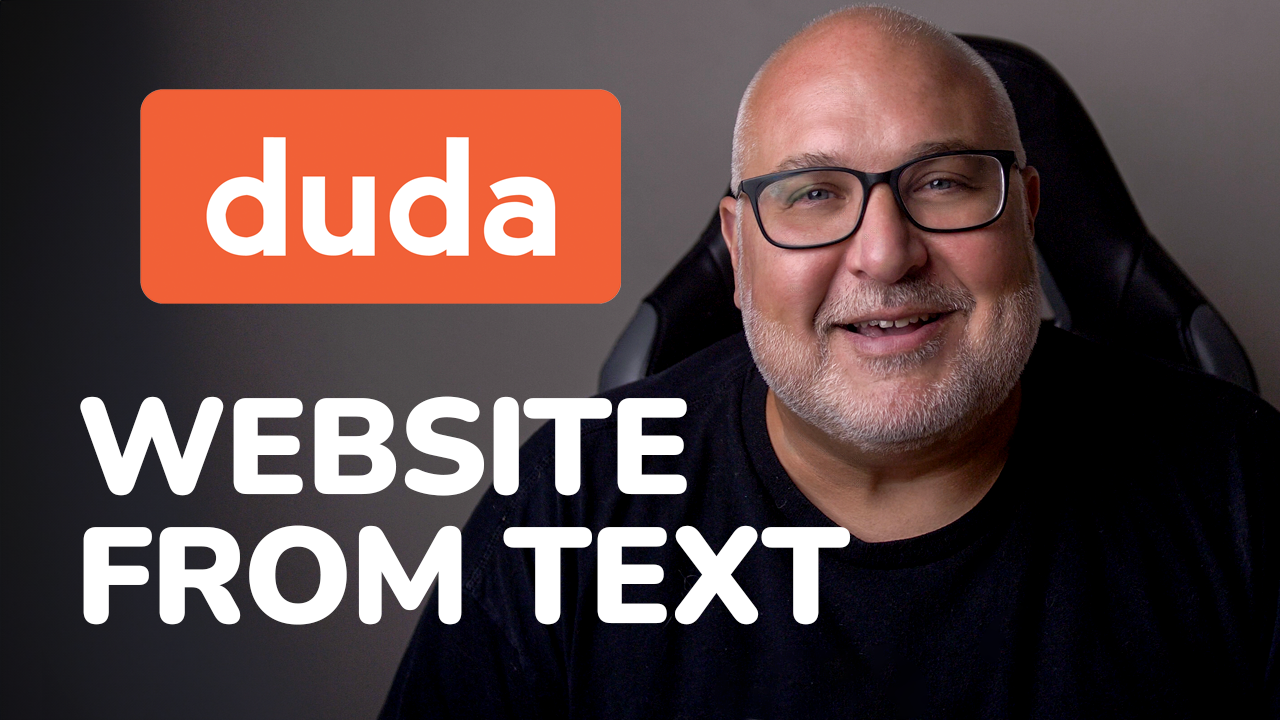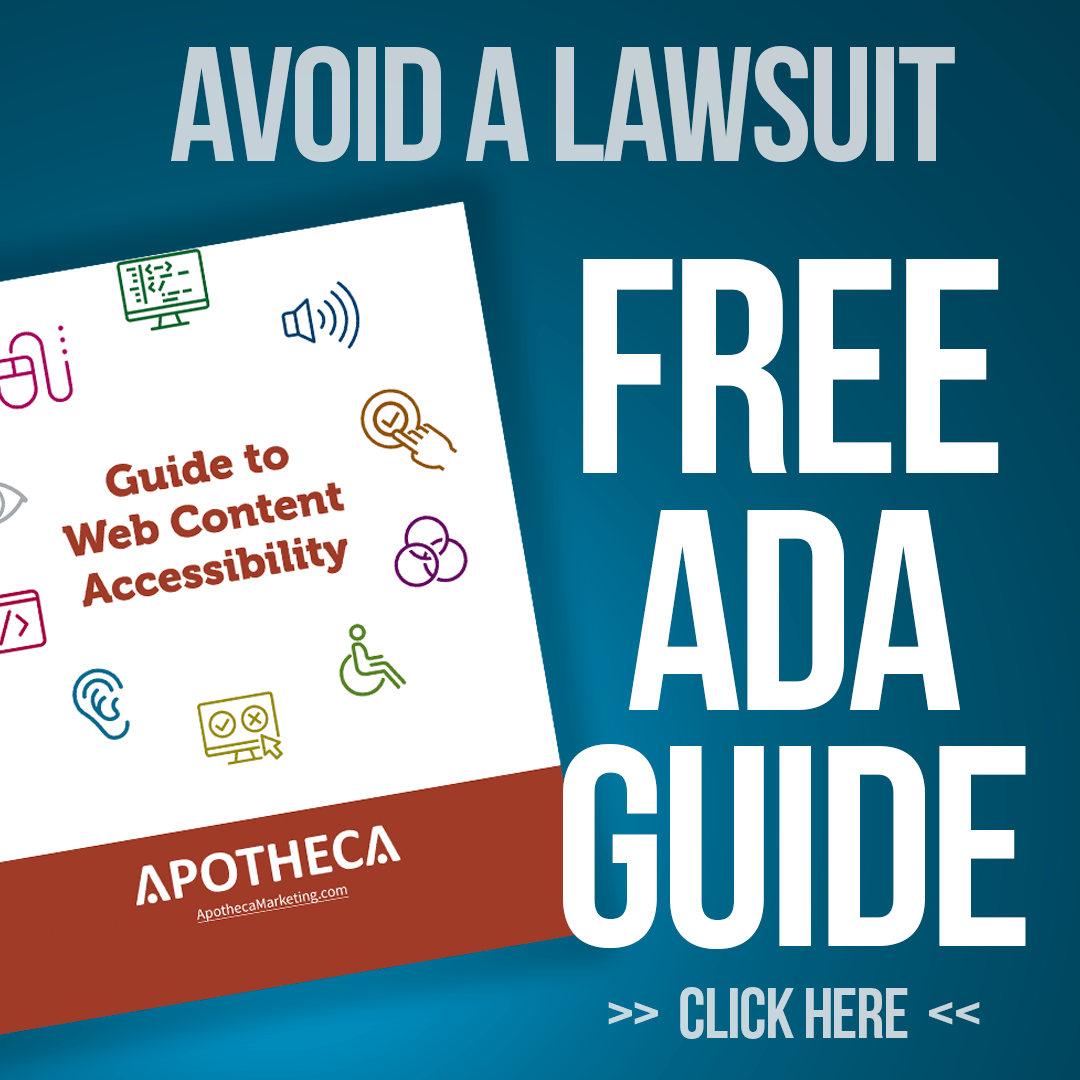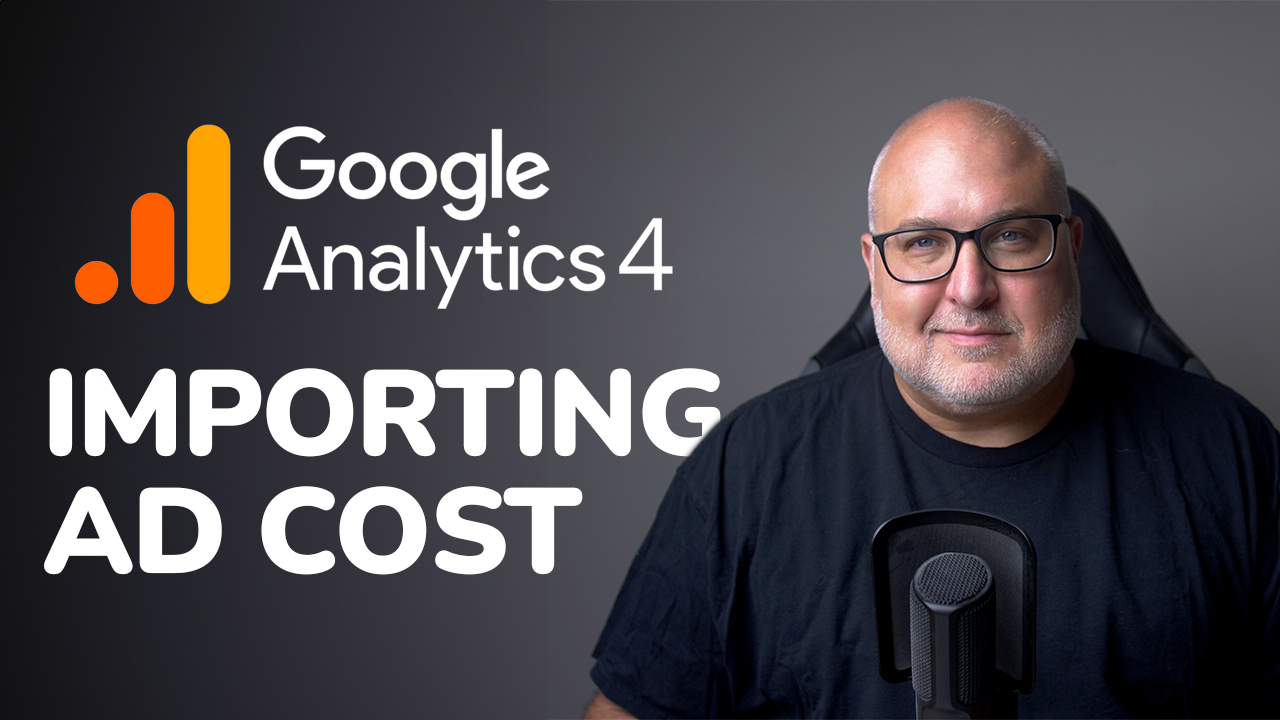Marketing Attribution: Is It Time To Turn Off Your Ads?
Roy Bielewicz
Marketing Attribution Is the Key
Hey, this is Roy from Apotheca. Have you ever been in the situation where you've been producing your monthly reports? You're looking at the campaigns that you're running and there's just some that aren't performing. So the pressure's there to turn those campaigns off, right? Well, that might not be the right answer and we're gonna take a look why, and it all has to do with attribution.
All right. So what is attribution and why is it important to your marketing campaigns? Well, basically in Google analytics and most other analytics tools. There's a way to give credit to your ads. And by default, historically, Google analytics gave credit to the last click on your campaign. So if you're running for instance, a paid search campaign, if that was what the customer clicked on last, that gets credit for your conversion and whether that's a retail sale or whether it's a form fill out or a download, whatever you've identified as a conversion.
And that is what gets credit. So why is that not necessarily the right model and why should you not turn off your ads? Well, let's take a little closer look at what attribution means. So in your Google analytics program, the default setting is 30 days of backward looking data and last click. And so if somebody clicked on that campaign in the last 30 days, they get credit or that campaign gets credit.
That eliminates potentially all of the other touchpoints that people contacted and interacted with in your site during their purchase process. And if you have a products or services that take a long consideration phase longer than 30 days say it's a very large purchase or it's something that. They just don't do in the spur of the moment.
There's a lot of research that goes into it. That customer may have come back to your site many times over a long period of time. Well, how do you then give credit for those interactions? And last click, like I said, it's probably not the most accurate because it's eliminating that process of getting information.
Coming back to your site. For instance, they may have seen an organic listing and clicked on that at some point because it wasn't the last click that organic listing isn't getting credit. It doesn't look like your organic program is working probably as well as it is. It's having an influence on that person's purchase.
Let's take a look at an example of what I mean by. So in Google universal, they have, this convenient conversion path report. And as you can see, it's inter conversions. You just go to multichannel funnels, overview, and scroll down. And this looks at up to four of your campaigns. And so you can see direct.
Organic referral paid search. We could, for instance, choose instead email and to see how those interact in this case, we know that paid search is a larger program. We can see the percent of conversions here that it's actually contributing. And again, this is on a last click conversion. So what you can see by this Venn diagram is that there's multiple interactions with different channels.
Most of the people are coming from direct. Most of the conversions on this last click model are coming from direct, but you can see where it overlaps paid search. In this case, this color right here, this little smaller dot, was interacted with over 102 or 102, conversions. And so if you were to say, Hey, from a last click perspective, paid search just is costing too much.
It's not really contributing to, the campaign, you know, overview. We, we want to turn off our ads or pause. Well, by doing that, you might be eliminating all of the interactions that had paid search as part of its process. So in this particular date window that we're looking at here, which is just a month, it interacted with a decent amount of sales.
So what you have to weigh is in this situation, if we turn off that campaign, depending on how much it's costing, we know it's gonna impact a certain number of sales. Do we want to, lose those sales and save that money, that is, you know, costing for that campaign. And same with these other systems you can see, like for instance, organic search, is a large driver in this sample data of, interactions from customers.
If you were to say, Hey, from a last click perspective, we're not getting a super huge amount of clicks. You can see that it is. Not the largest driver by any means. So maybe not focus on SEO efforts or be writing the content like we have been because it's a large expense. We're gonna not focus on that for a while.
Well, you can see that would eliminate, relatively large. Amount of crossover traffic that they're having, if that program went away. Okay. So let's take a look at what attribution is and what are some of the models that you can use in your reporting that may help you understand better how your programs are performing, where you wanna put your budget and put your time and effort.
So if we look at this sample report from Google's demo site, you can see they have a number of different marketing channels. And the default model here that you're comparing against is last click, which is probably what you're used to today. So let's take a look at what some of the other channels are and how that may affect your reporting.
One thing to consider, and one thing to know is that in GA four, the default. Attribution model is data driven. And so what that means is that it's Google's AI is looking at the conversions that you're getting. It's looking at your customers and it's attributing sales, revenue, and conversions to the channels that it thinks deserve it.
So it's actually breaking that. How it thinks they deserve it. It's a little bit of a black box. We don't really know how they're figuring that out, but it is their recommended method because they figure that their AI knows more about your customers and more about your business than anybody else, because it sees the data and can compare it to other like models.
And so we'll assign that data. the other is first click, which there are some advertising programs, particularly affiliate programs that do that it tends to give, or it gives credit to the first interaction that somebody had. So the first click that led them to your site during a specific period of time, it's not necessarily gonna be as accurate as last click because there's a whole bunch of stuff that happens in between.
The, before they make that decision. So giving their first introductory click, it could be for instance, a very broad keyword that didn't convince them to purchase from you. So it could be you know, just a one keyword or two keyword, for instance search and Paid search they've then since narrowed that down and what eventually converted them could be something entirely different.
So understanding what introduced them to your site and then what converted is important. So giving them that first click could skew some of that data linear, as you can see here. And as you can probably guess is equally distributing. To each of the touchpoints that they've had during that period of time.
So there's no it doesn't give emphasis to any one piece of that. It breaks it out evenly across all of their touchpoints and all their channels. Position based is Giving significant allotment to the first click. So 25% of the allotment of the conversion to the first click, it then spreads out 50% of the allotment, the credit to all of the.
Intermediary clicks and then it gives another 25% to the last click. And so this is basically saying we're gonna give the two bookends, the most credit and spread in a linear fashion the intermediary touchpoints, and then finally time decay. And essentially that's saying, Hey, we know it's a journey, so we're gonna give more credit to the end of the journey, to the the.
Conversions or the interactions that took place closer to the conversion event. And so the further back you go, the less credit they go and that's time to. So let's just look at these data points, using their data driven model, which again is their recommended model. So you can see here that when you, it will change the data slightly and that when you start to look at the numbers over here is where you start to see that there's areas where those programs may have gotten too much credit under Last click or they may have gotten, you know, too little credit.
Let's take a look at another data model where we can see that a little bit better. All right. If we look at this one, this is, has a last click. and it also has the data driven and you can see in here where the numbers are starting to be pretty significantly different. So for instance, email in the data driven model gets a lot more credit than it would have in the last click model.
Similarly there's unassigned Channels that just aren't labeled organic is probably, should get more credit than it has historically in last click. Okay. Let's look at first click and you can see here that it starts to really be significantly different than the last click as you would expect.
Um, In this case, you know, organic search for instance is, would be under reported in the last click model, because it's getting a lot of the first clicks for instance. And then let's take a look at one of the other models. Let's say time decay
again. Organic is probably Should be getting more credit in this model. Then you would assume based on last click again, you see some of these numbers where referral probably shouldn't be getting as much credit. As it is, if you were to look at the time decay model, it's probably getting more credit than it should be in, in this.
So one of the important things to remember with attribution is there's no right answer to this. Like there are, depending on your business, depending on the life cycle of your customers. Depending on the types of products and you know, how quickly from interaction to purchase it is there's might be multiple models that work for you.
And the Google's data driven model, I think is probably something that you'd wanna explore it. Like I said, it is the default in GA four now, but from an attribution standpoint, It's really looking at all of them and comparing them and trying to understand the crossover between channels. If you tend to have only one source of customers, it tends to be either all organic or all paid.
Um, maybe this isn't as big a deal to you because you know that. For instance, if you're a new business and you don't have a lot of organic search traffic, it's all paid traffic. It's all coming from paid search, or it's all coming from Facebook or some other program like that. This isn't necessarily as important to you because you don't have all of these different sources of traffic.
So, you know where they're coming from, you know, that that is what's driving your business. However, if you're a mature business, if you have a lot of programs going on and you need to really understand where you're applying your budget, where you're putting your time and effort, then you wanna explore the different models to get an understanding of that crossover.
What is the customer journey? What are the channels that interacting with? And then don't eliminate those. Don't turn off those ads just as a knee jerk, because this week it looks like paid search is down. It's not converting your, maybe your Roaz isn't as good this week. And look at the bigger picture.
Look at a larger timeframe and try to understand is that for instance, paid search program actually profitable over a longer period of time. That will tell you that your customers are taking longer to make decisions. They're not making 'em right that week. They may click and come back and visit over a period of time.
So look at a larger section of data. Look at some different models to try to understand, you know, is that a profitable program for you? I hope this is helpful for you. If it was please go ahead and consider clicking like that helps our channel and stop back for more. And we'll have more videos like this in the future.
Contact Us





